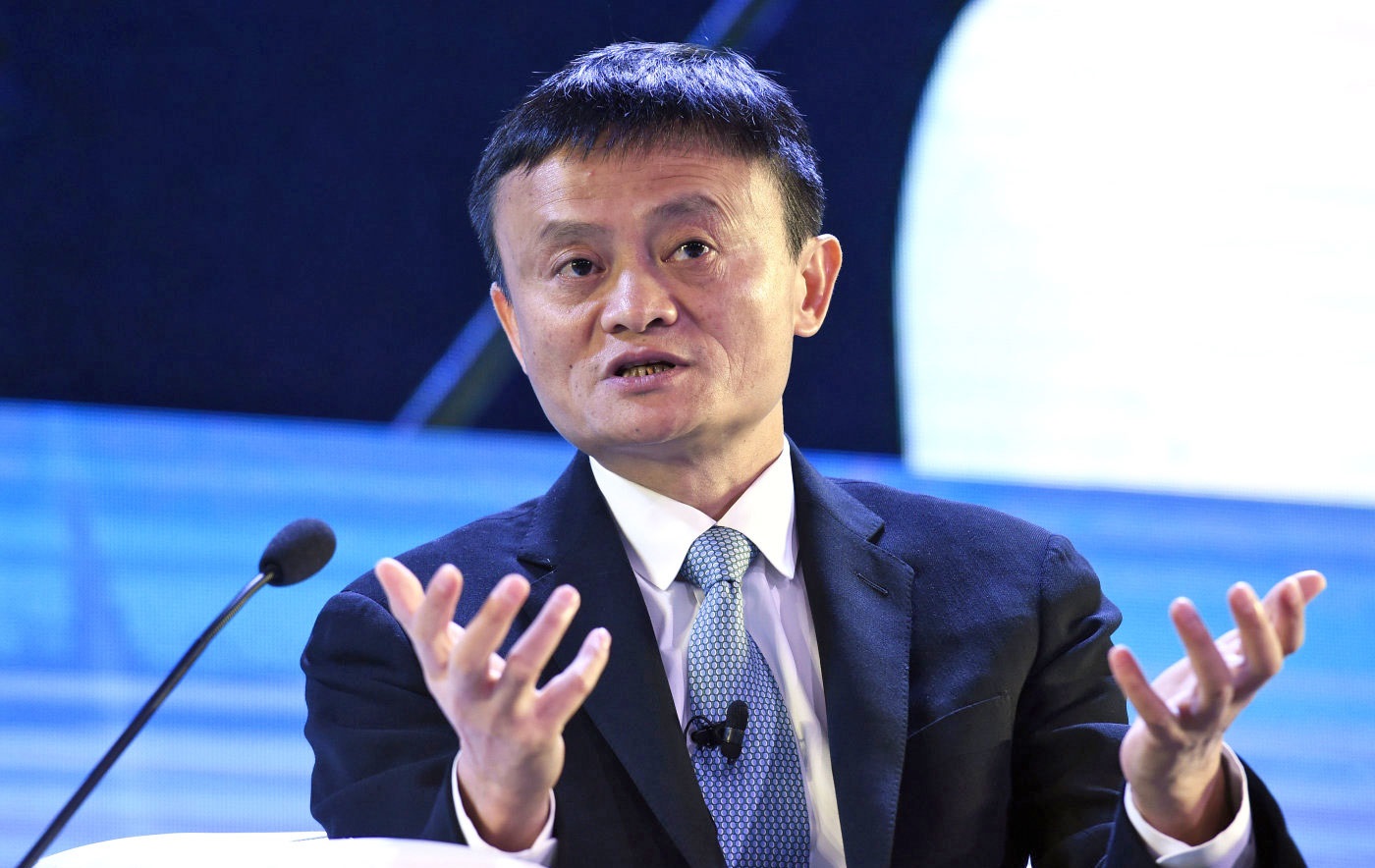By Cecilia Lim |
Jack Ma, the founder of Chinese e-commerce conglomerate Alibaba, is known for his love of Tai Chi. During an interview with Esquire in 2013, Ma discussed his understanding of Taoism and applying it to management—in particular, to realise that when things reach an extreme, they can only move in the opposite direction (物极必反).However, Ma recently announced his plan to resign as Alibaba’s chairman next year, despite the company’s market capitalisation of more than US$400 billion (S$552 billion), which makes it one of the top 10 most valued corporations in the world. This has led to rampant speculation on why Ma is retiring so early.
Is this another application of his Taoist philosophy to leave the company at its peak before it falls into troubles? If so, what troubles could there be?
Interestingly, Ma seems to have sensed his fate five years ago when he told Esquire, “I think entrepreneurs in China indeed do not have good endings… I have known my ending and therefore I can perceive these with optimism.”
China’s Tough Business Terrain
It is no secret that Chinese businessmen have to cultivate relationships with Chinese Communist Party officials, in order to further their business interests.
While such relationships may help businesses grow initially, they can also backfire at a later stage. Xu Ming, founder and former president of the Dalian Shide Group, a conglomerate that has footprints in chemicals, real-estate, insurance and a soccer club, ended up in jail in 2012 following the disgrace of Bo Xilai, his major political patron.
According to the indictment against Bo, Xu offered about 21.8 million yuan (S$4.3 million) in bribes to Bo and his family, including a US$3.2 million
(S$4.4 million) villa on the French Riviera. In return, Xu and his company won large public-works contracts in Dalian, where Bo was serving as the mayor till 2000. Xu also earned licenses and expanded into new business lines.
These projects and his relationship with Bo are said to have transformed him from a millionaire to a billionaire shortly after he turned 30.
In 2015, Xu reportedly died of a heart attack in jail. His sudden death just nine months before his release date prompted many to speculate that he could have been murdered.
Once the eighth richest man in China according to Forbes, Xu’s fate is shared by many other successful businessmen. According to Hurun Report, by 2015 over 1 percent of Chinese billionaires featured on its annual Hurun Rich List since its launch in 1999 have been jailed or charged for bribery, embezzlement or other economic crimes.
During an interview with the New York Times, Chen Zhiwu, a professor of finance at Yale University said, “To be a successful businessman in China you need to play the game, and even corrupt an official, which makes you very vulnerable. If you don’t cooperate with them, you won’t succeed. Those are the choices you have in a system where government power is unchecked.”
However, the game is not easy to play, even for the richest man in Hong Kong. Since 2013, Li Ka-Shing, who now ranks 23rd on Forbes’ Billionaires List, has been continuously divesting assets from China.
I think entrepreneurs in China indeed do not have good endings… I have known my ending and therefore I can perceive these with optimism.
Jack Ma, founder of Chinese e-commerce conglomerate Alibaba
Among all Hong Kong businessmen, Li was the most successful and had the closest ties to Beijing, says He Qinglian, a prominent Chinese author and economist who blogs regularly on Voice of America. Some analysts say that Li’s divestments are a reaction to the uncertain political environment in China, where there has been a power struggle between the factions of China’s current president Xi Jinping and former party chief Jiang Zemin.
Li once received high-profile receptions from Deng Xiaoping, Jiang Zemin and Hu Jintao—but never from Xi Jinping. In fact, Li Ka-Shing started selling off his assets in China almost immediately after Xi came to power in October 2012. Prior to that, he had won many lucrative deals through his close connections with Jiang.
Doing business under China’s crony capitalism is tough. But could Jack Ma’s early retirement be due to similar reasons—in other words, the loss of political favour after the reshuffling of power in Beijing?
The answer is probably not. In a Knowledge@Wharton’s radio show, Orville Schell, director of the Centre on U.S.-China Relationships at the Asia Society in New York, pointed out that Ma has had a strong relationship with Xi since 2002, when Xi served as party general secretary of Zhejiang province until 2007. Alibaba’s headquarters are located in Zhejiang province.
Then what could have led to Jack Ma’s departure?
Alibaba’s Financial Empire While
most people are familiar with Alibaba’s e-commerce business, less is known about its finance arm. Alibaba’s Alipay was originally designed to facilitate safe transactions between buyers and sellers on Taobao, Alibaba’s online marketplace. Now, Alipay is used to pay everything from household bills to traffic fines.
By the end of 2013, Alipay had attracted about 300 million users in China. As users left large amounts of idle cash deposited in their Alipay accounts, this led to the launch of the online investment platform Yu’e Bao, which means “leftover treasurer”.
Today, Yu’e Bao is the world’s largest money market fund. Users can transfer their spare money from Alipay to Yu’e Bao with just a few clicks. As Yu’e Bao offers higher yields than five-year Chinese bank deposits, yet only requires a minimum balance of 1 yuan (20 Singapore cents), it has attracted over 400 million users with 1.7 trillion yuan ($245.3 billion) in net assets as of March 2018, according to Reuters.
In 2015, Alibaba launched its online lender MYbank, which has provided loans to 10.4 million customers as of June 2018. Targeting micro-enterprises and farmers, MYbank aims to grow its client base to attract 70 million to 100 million small businesses that are under-served by traditional banks.
By using cloud computing to bypass the expensive systems employed in traditional banks, as well as leveraging on big data, artificial intelligence, and facial recognition to facilitate lending, MYbank managed to operate as a digitalonly bank with 300 staff, half of whom are technicians, reports Reuters.
Sesame Credit, also launched in 2015, is a credit-scoring scheme that rates opted-in users on a scale of 350-950 based on their transactions, debt repayments and social networks.
Users with higher scores are entitled to privileges including waivers on car rentals and hotel deposits. Although Sesame Credit states its purpose is to build trust between businesses and customers, many have criticised its opaque algorithm for calculating scores.
Furthermore, while Sesame Credit is still a private credit rating programme, it may eventually fall under the Chinese government’s initiative to establish a nationwide “social credit” system which has been dubbed as “Orwellian”.
Under this “social credit” system, individuals with traffic violations or late bill payments may end up with low scores that deny them access to flights and train travel.
According to Australian Broadcasting Corporation (ABC), purchasing too much alcohol may result in deductions of one’s credit score while buying diapers could add points to it. Whom one dates may also affect their score. By September 2018, around 10 million people have been punished due to having low scores under its pilot project.
Alibaba’s Competition With State-Owned Banks
Alipay, MYbank and Sesame Credit are all subsidiaries of Ant Financial, Alibaba’s financial arm. Over the past few years, Ant Financial has demonstrated its ability in building up a financial empire that affects a third of the Chinese population.
“Alipay diverted savings from traditional banks while Yu’e Bao further competed with these banks in providing investment products. Personal loans and loans to small businesses issued by Ant Financial [undermined these banks’ dominance over finance],” says Wenzhao, a news commentator who runs a popular YouTube Channel.
To curb Yu’e Bao’s growth, four state-owned banks lowered the limits for Alipay transactions and fund transfers from Alipay to Yu’e Bao from 50,000 yuan to 10,000 yuan (or 5,000 yuan, depending on the bank) in 2014.
As a third-party payment service provider, Alipay has partially played the role of central bank by settling payments between banks, according to Wenzhao.
Buyers’ payments are first wired to a bank account under Alipay. After the buyer has confirmed receipt of goods, Alipay proceeds to transfer the buyer’s payment to the seller’s bank account.
According to The Payment and Clearing Association of China, the transaction volume using non-banking payments is around 100 trillion yuan with 469 million third-party mobile payment users in 2016.

However, third-party payment service providers like Alipay are losing control of the booming mobile payment businesses they have built. The People’s Bank of China (PBoC) mandated that, as of June 2018, all online payments have to be channelled through NetsUnion Clearing Corporation (NUCC), a new clearing house.
PBoC and its affiliated banks own 35 percent of the stakes in NUCC. Alipay and Tenpay—which owns WeChat Pay—hold 10 percent each. Another 45 percent is accounted for by 36 other third-party payment companies.
In short, Jack Ma mainly is facing increasing risk associated with the financial industry. His Ant Financial has been competing for profits with the banking industry and already grown into a burgeoning financial empire outside of the state-owned financial system.
Wenzhao, news commentator who runs a
popular YouTube Channel
In addition, after Alibaba launched MYbank in 2015, the Industrial and Commercial Bank of China, China Construction Bank and Agricultural Bank of China “are setting up e-commerce platforms as a defence to Alibaba’s expansion,” according to Bloomberg.
For instance, the online mall of Industrial and Commercial Bank of China, Rong E Gou or “Easy to Buy” sells everything from investment products to jewellery, vehicles and clothes.
The Risk
Agreeing that Jack Ma’s early retirement is out of selfprotection, Wenzhao noted that since last year the Chinese government’s focus has been on taking full control of the financial industry.
“In short, Jack Ma mainly is facing increasing risk associated with the financial industry. His Ant Financial has been competing for profits with the banking industry and already grown into a burgeoning financial empire outside of the state-owned financial system,” says Wenzhao.
Furthermore, as the U.S.-China trade war intensifies, “The Chinese Communist Party is facing tremendous political and economic pressure,” says Xia Xiaoqiang,
Chinese-language Epoch Times political columnist. The party needs more money to tide over the rough times—and private companies like Ant Financial are a convenient source.
Commenting on Jack Ma’s departure, Orville Schell says,“We’ve already seen [the government] cracking down on other moguls. People are disappearing, they’re hauled in for scrutiny, to be questioned, and no one quite knows why or what’s going on. So for Jack to make this lateral move now before that happens to him and his company I think is immensely smart.”















